If you want the entire row with the highest date for each Id, you can use the following code (written with LinqPad). If you just want the Id, you can use @BurnsBA's answer, as it will be slightly more efficient.
void Main()
{
var data = new List<Record>
{
new Record(){Id=1, Value=1, Date=new DateTime(2017,1,1)},
new Record(){Id=1, Value=2, Date=new DateTime(2017,2,1)},
new Record(){Id=1, Value=3, Date=new DateTime(2017,3,1)},
new Record(){Id=2, Value=5, Date=new DateTime(2017,1,1)},
new Record(){Id=2, Value=6, Date=new DateTime(2017,2,1)},
};
var query = data.GroupBy(d => d.Id)
.SelectMany(g => g.OrderByDescending(d => d.Date)
.Take(1));
query.Dump();
}
public class Record
{
public int Id { get; set; }
public int Value { get; set; }
public DateTime Date { get; set; }
}
Results:

First it groups by Id, then sorts the items within the group by Date in descending order, and returns the first one, SelectMany then flattens the list.
